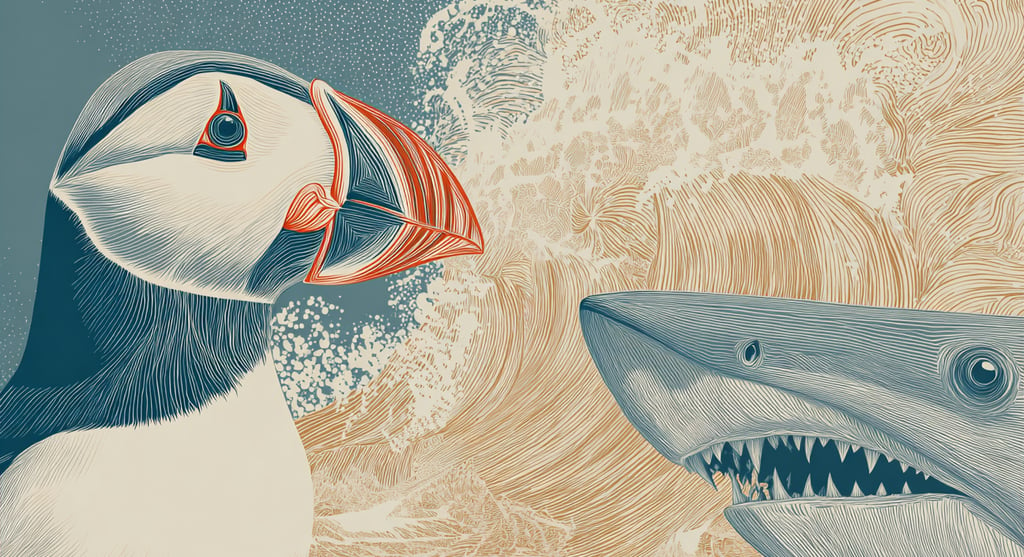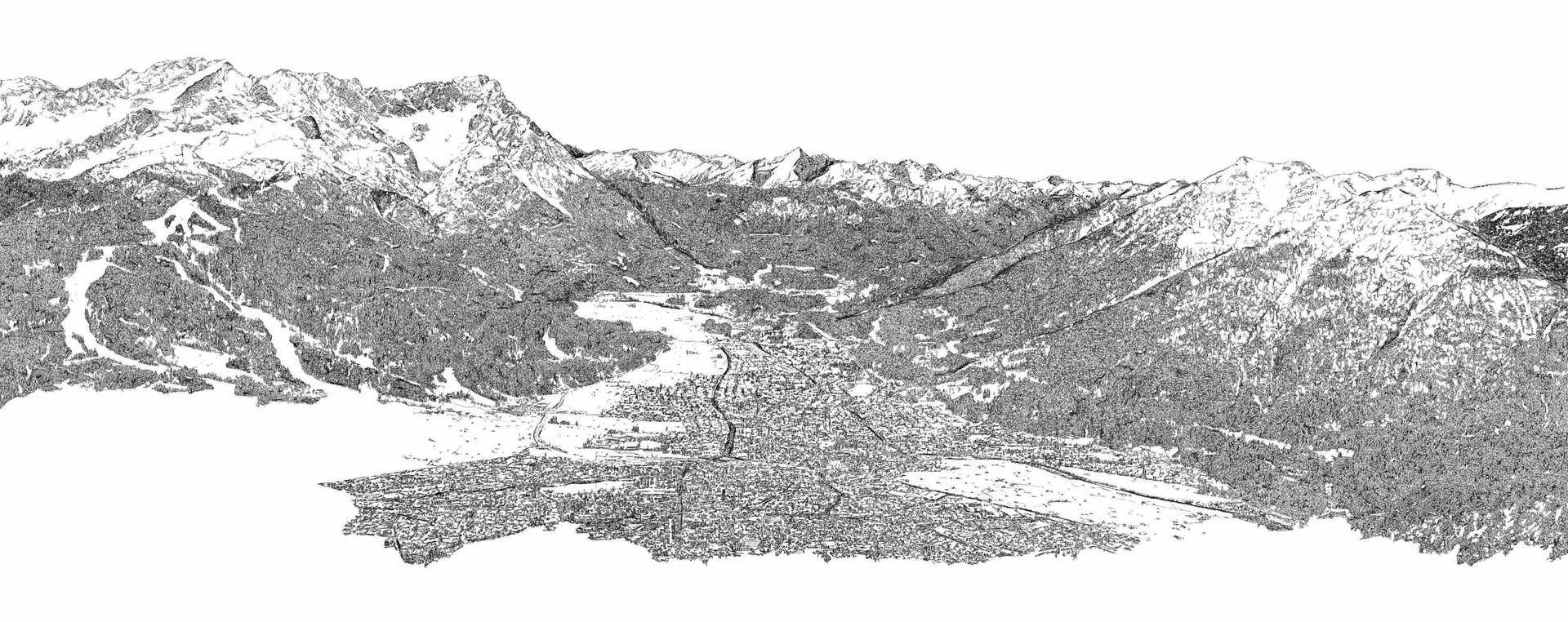LOOKING UP AT THE SKY ... AND INTO THE DEPTHS
WHEN THE SKY FALLS SILENT AND THE SEAS BECOME LONELY
Birte Brunner
11/28/20253 min read


The screeching of puffins hunting in dense flocks above the cliffs of Iceland and Scotland. The soft cooing of a turtle dove, whose population in Europe alone has declined by more than 80% since 1980. The rumbling courtship calls of great bustards, whose last German populations in Brandenburg and Saxony-Anhalt only survived thanks to massive conservation programmes2.
A recent study in the journal Nature warns that over 500 bird species could become extinct within the next century if we do not finally take decisive action3.
Seabirds are particularly affected, such as puffins, whose populations are suffering from overfishing, climate change and plastic waste4.
And while the sky falls silent, the sea is becoming a silent desert.
Sharks – from the elegant hammerhead shark to the majestic oceanic whitetip shark – are disappearing at an alarming rate. According to the IUCN Red List, 37% of all shark and ray species are critically endangered. An estimated 100 million sharks are killed every year – most of them just to cut off their fins, with the rest left to die in the sea6.
Yet sharks are not monsters, as they are often portrayed in myths and bad films. They are the guardians of the oceans. Without them, functioning networks collapse. Studies in Western Australia have already shown that the loss of large sharks leads to an explosion in the population of medium-sized predators – with dramatic consequences for seagrass beds and coral reefs.7.
The situation is similar with birds. They are not just beautiful splashes of colour in the branches. They pollinate flowers, spread seeds and regulate insect pests.
BirdLife International's State of the World's Birds analysis shows that 49% of all bird species worldwide are declining in numbers8.
But it is not too late yet.
In Brandenburg, the Great Bustard Protection Foundation has established one of the most successful species conservation programmes in Europe: with the help of breeding stations, nest protection and targeted habitat management, the great bustard population has risen from less than 60 to over 300 individuals2.
Action plans are underway in Spain, France and Italy to enforce hunting bans and secure breeding areas for the turtle dove9. In Iceland, a moratorium on puffin hunting was decided in 2024 to save the colonies.4.
There is also hope for sharks: in April 2025, UNESCO and the Ocean Conservation Trust presented the first global network of so-called Shark Hope Zones – a system of protected areas covering 1.5 million square kilometres of ocean10.
But these projects need more than just good intentions. They need support – now. Attention. Commitment. Donations
Above all, they need a change in thinking:
We need to redefine our idea of progress.
Perhaps it is uncomfortable to imagine:
A silent sky.
An empty sea.
But it is precisely this idea that must shake us awake
We all bear responsibility – as consumers, as voters,
as human beings.
We all have the power to change things.
For the puffins. For the turtle doves. For the great bustards.
For the sharks that have roamed the seas for 400 million years.11.
For a world in which we want to live.
BirdLife International. (2022). European Red List of Birds. https://www.birdlife.org ↩
Stiftung Großtrappenschutz e.V. Großtrappe in Deutschland. https://www.grosstrappenschutz.de ↩ ↩2
Rutschmann et al. (2025). Predicting avian extinction risk under future scenarios. Nature, 2025. ↩
BirdLife Europe. (2024). Puffin Conservation Measures. https://www.birdlife.org/europe-and-central-asia/ ↩ ↩2
IUCN Shark Specialist Group. (2021). Global Shark Assessment. https://www.iucnssg.org ↩
Worm, B. et al. (2013). Global catches, exploitation rates, and rebuilding options for sharks. Marine Policy, 40: 194–204. ↩
Heithaus, M. et al. (2008). Predicting ecological consequences of marine top predator declines. Trends in Ecology & Evolution, 23(4): 202–210. ↩
BirdLife International. (2018). State of the World’s Birds. https://datazone.birdlife.org ↩
European Turtle Dove Action Plan. (2018). International Species Action Plan. https://ec.europa.eu ↩
UNESCO. (2025). Global Shark Hope Zones Announced. https://www.unesco.org ↩
Fossil record of sharks. (2010). Sharks through time. Smithsonian Ocean Portal. ↩
Let's not wait until the last Call fades away.
Let's act now.
So that the Sky does not fall silent
and the ‘Sea’ Habitat is preserved.

